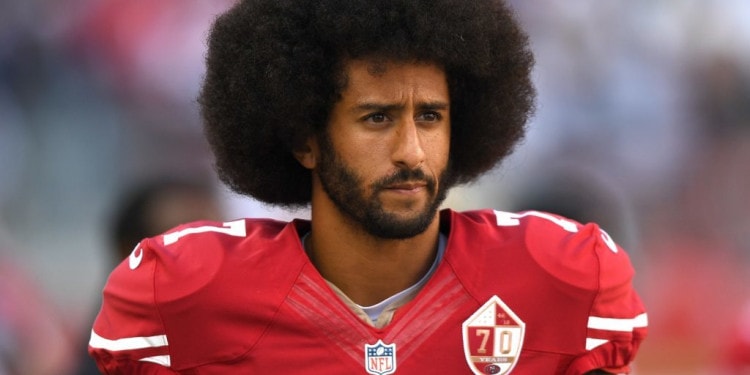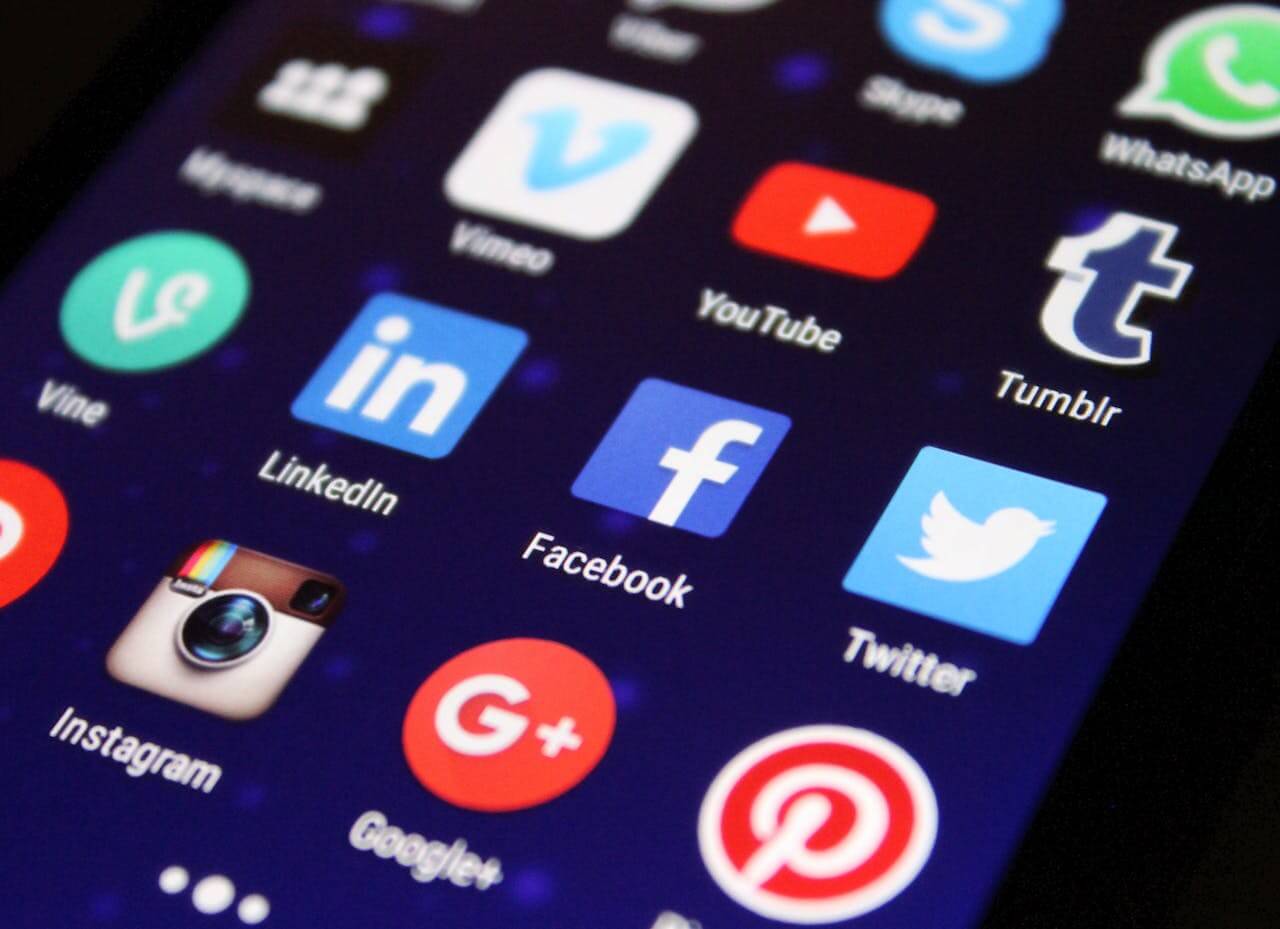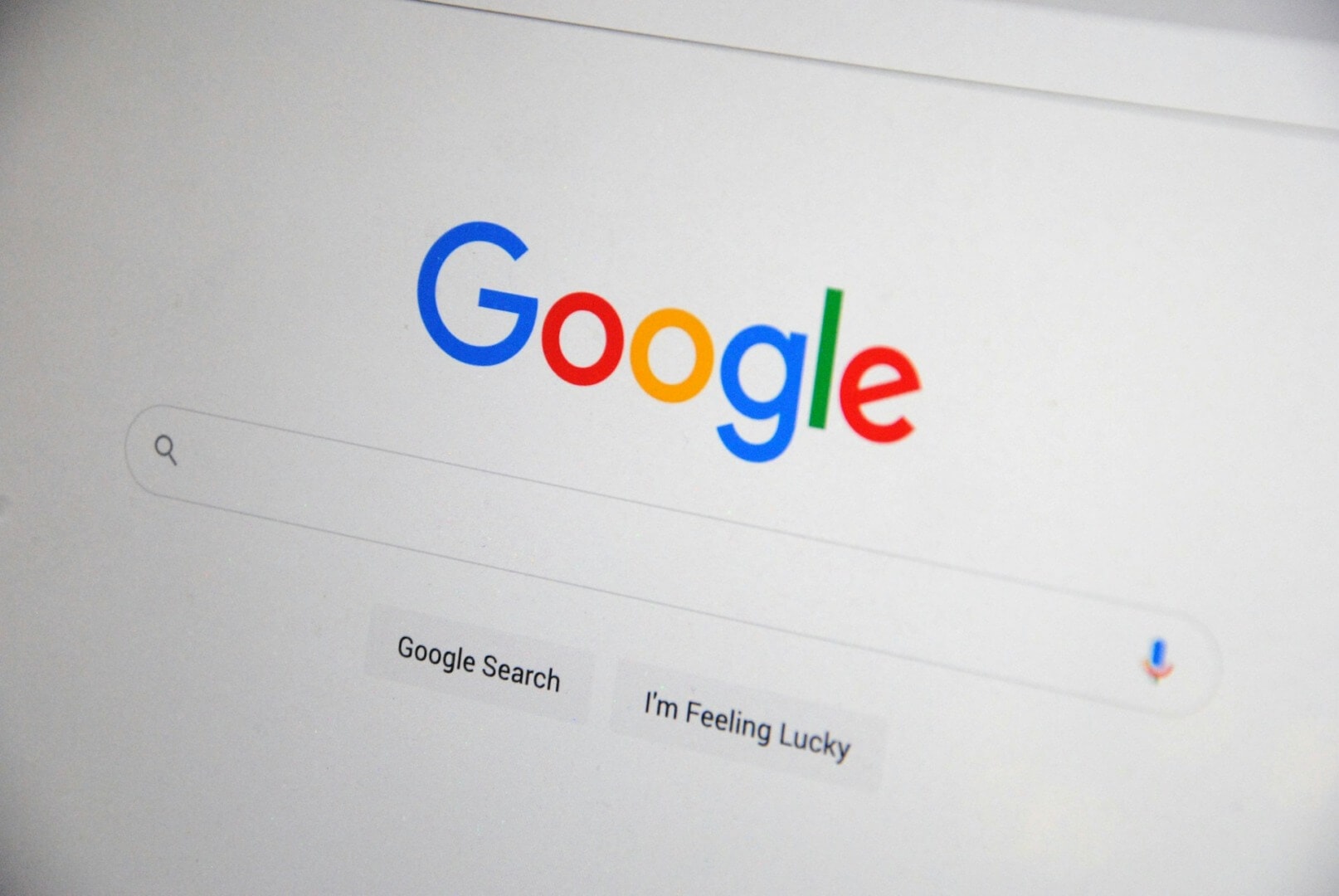Nike’s announcement that it was going to include former San Francisco 49ers quarterback Colin Kaepernick for its 30th anniversary advertising for the company’s iconic “Just Do It” campaign was unsurprisingly met with waves of both supporters and detractors bitterly divided over the marketing push. Supporters applauded Nike for making the move, praising the apparel maker for taking a stand in today’s political climate, with filmmaker Spike Lee calling the decision “a very courageous move on the part of Nike.” Detractors found the move an affront to American patriotism, refusing to support Nike after lending its backing to Kaepernick, who first became controversial in 2016 for kneeling during the national anthem during NFL games as a form of protest against police brutality. Some even went so far as to start boycotting Nike and cutting off the Nike logo from clothing as a form of counter-protest.
In the Video: Nike – Dream Crazy Featuring Kaepernick Credit: Nike
None of this can’t have been too much of a surprise for Nike however, which has since benefitted from over $43 million in media exposure since releasing its plans to the public. Nike certainly isn’t a stranger to supporting beleaguered athletes either, opting to stand by Tiger Woods after revelations that he had cheated on his then wife Elin Nordegren. If there’s one thing that Nike is excellent at its marketing, and from a purely marketing perspective the Kaepernick ad has been a rousing success.
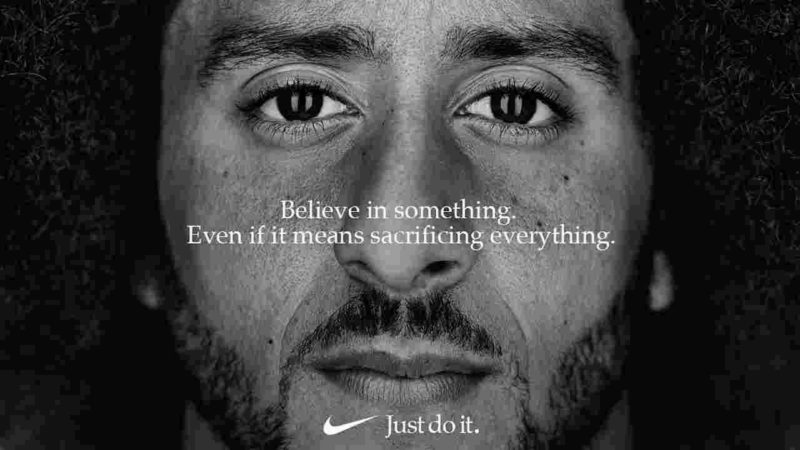
In the Photo: Nike’s “Just Do It” ad with Colin Kaepernick. Source: Nike.
When researchers and historians look back at the Kaepernick campaign decades from now, they will likely be quick to realize that it is part and parcel a product of the corporate marketing/PR environment post-Trump.
In this environment, business and politics are deeply intertwined, and whenever political controversy erupts companies are practically expected to take a stand on the issue (neutrality or a lack of a response aren’t acceptable answers either). Even as recently as 10 years ago, Nike would likely not have felt compelled to include in its marketing references to the sociopolitical anxieties of the time, such is the different state of affairs we live in today.
While Nike’s decision to lend its implicit support to Kaepernick and his cause is admirable in principle, it downplays the hypocrisy and double standards the company has engaged in in the past. For while in 2018 Nike has lent its support to Colin Kaepernick, whose legacy is and probably forever will be associated with social activism against police brutality, in 2015 the exact same company offered police officers 30% off its merchandise in honor of Law Enforcement Appreciation Day, a move which certainly sends mixed messages to say the least.
It’s certainly not the first time Nike has been accused of being two-faced in its branding, with its “Equality” ad getting slammed by critics in 2017 over the fact that Nike continues to benefit from cheap labor in Third World countries. Other companies have also been criticized for trying to tackle social issues beyond its scope, including the now infamous Pepsi protest ad featuring Kendall Jenner.
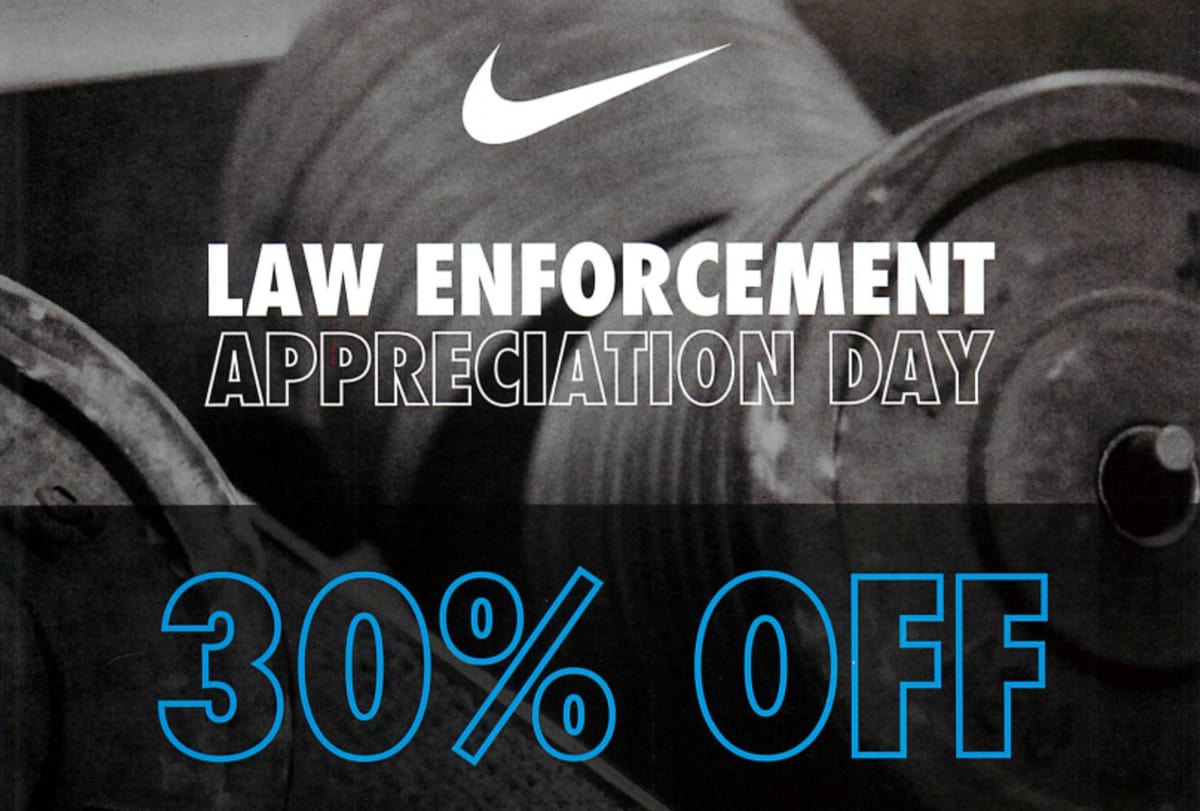
In the Photo: Nike’s sale for “Law Enforcement Appreciation Day”. Source: Nike.
When people (especially politicians) get pulled into political debates, they’re often expected to maintain some sort of consistency in their arguments and philosophies, regardless of which side they support. Failure to do so leads to accusations of hypocrisy, opportunism, and flip-flopping, which are embarrassing at best and political liabilities at worst. But this is inherently counter to what good businesses do, act nimble and adapt to ever changing market conditions.
The main flaw with businesses taking stands on social issues is that it inevitably forces them to tack on human behaviors on inhuman, corporate entities, or to put it another way, to put square company pegs into round human holes. To be fair, companies and business leaders have the right to say whatever they like and take on social issues if they so choose. But they should do so fully aware of the risks that come along with it, and consumers should call out offenders who do contradict themselves. Because in the world of social issues, what you do speaks louder than what you say.
In the Video: Pepsi’s protest advertisement featuring Kendall Jenner. Source: Pepsi.
In the near term this is unlikely to concern either Nike or Kaepernick however. Nike will take its buzz and increased brand awareness to the bank, while Kaepernick will cash in on his likely lucrative checks. While the overall response to Nike’s latest “Just Do It” ad has been neutral to even positive up until this point, the company shouldn’t expect to receive the same response the next time around. Because someone just might end up spreading the word that it’s not practicing what it preaches.


